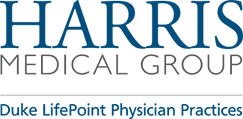Quality preventive care is essential to good health. The screenings and vaccinations you need change throughout the phases of your life. Are you and your family up to date on screenings and vaccinations recommended for your ages?
Click on your age group below to learn more about screenings and vaccinations recommended by age and schedule an appointment with a healthcare provider so you, your family, and our entire community can all be their very best.
6 months - 18
VACCINATIONS
|
|
AGE TO ADMINISTER |
|
|
NOTES |
||
|
|
AGE TO ADMINISTER |
|
|
NOTES |
||
|
|
AGE TO ADMINISTER |
|
|
NOTES |
||
Learn more about the Centers for Disease Control's recommended vaccination schedule for children and adolescents from birth to age 18 here.
Be sure to stay in touch with your child's pediatrician or family medicine provider to learn which additional screenings may be needed based on your family history.
These recommendations are for healthy individuals with no additional risk factors. If your child has an increased risk based on your family history or an existing health condition, talk to their provider about when screenings are appropriate.
Screenings may vary based on health history.
18+, 20s, 30s
VACCINATIONS
|
|
AGE TO ADMINISTER |
|
|
NOTES |
||
|
|
AGE TO ADMINISTER |
|
|
NOTES |
||
|
|
AGE TO ADMINISTER |
|
|
NOTES |
||
CANCER SCREENINGS
|
|
AGE TO ADMINISTER |
|
|
NOTES |
||
DISEASE SCREENINGS
|
|
AGE TO ADMINISTER |
|
|
NOTES |
||
|
|
AGE TO ADMINISTER |
|
|
NOTES |
||
|
|
AGE TO ADMINISTER |
|
|
NOTES |
||
|
|
AGE TO ADMINISTER |
|
|
NOTES |
||
Learn more about the Centers for Disease Control's recommended vaccination schedule for adults age 19+ here.
Be sure to stay in touch with your primary care physician and OB/GYN to learn which additional screenings may be needed based on your family history.
These recommendations are for healthy individuals with no additional risk factors. If you’re at an increased risk based on your family history or an existing health condition, talk to your provider about when screenings are appropriate.
Screenings may vary based on health history.
40s, 50s, Early 60s
VACCINATIONS
|
|
AGE TO ADMINISTER |
|
|
NOTES |
||
|
|
AGE TO ADMINISTER |
|
|
NOTES |
||
|
|
AGE TO ADMINISTER |
|
|
NOTES |
||
|
|
AGE TO ADMINISTER |
|
|
NOTES |
||
CANCER SCREENINGS
|
|
AGE TO ADMINISTER |
|
|
NOTES |
||
|
|
AGE TO ADMINISTER |
|
|
NOTES |
||
|
|
AGE TO ADMINISTER |
|
|
NOTES |
||
|
|
AGE TO ADMINISTER |
|
|
NOTES |
||
|
|
AGE TO ADMINISTER |
|
|
NOTES |
||
DISEASE SCREENINGS
|
|
AGE TO ADMINISTER |
|
|
NOTES |
||
|
|
AGE TO ADMINISTER |
|
|
NOTES |
||
|
|
AGE TO ADMINISTER |
|
|
NOTES |
||
|
|
AGE TO ADMINISTER |
|
|
NOTES |
||
Learn more about the Centers for Disease Control's recommended vaccination schedule for adults age 19+ here.
Be sure to stay in touch with your primary care physician and OB/GYN to learn which additional screenings may be needed based on your family history.
These recommendations are for healthy individuals with no additional risk factors. If you’re at an increased risk based on your family history or an existing health condition, talk to your provider about when screenings are appropriate.
Screenings may vary based on health history.
65+
VACCINATIONS
|
|
AGE TO ADMINISTER |
|
|
NOTES |
||
|
|
AGE TO ADMINISTER |
|
|
NOTES |
||
|
|
AGE TO ADMINISTER |
|
|
NOTES |
||
|
|
AGE TO ADMINISTER |
|
|
NOTES |
||
CANCER SCREENINGS
|
|
AGE TO ADMINISTER |
|
|
NOTES |
||
|
|
AGE TO ADMINISTER |
|
|
NOTES |
||
|
|
AGE TO ADMINISTER |
|
|
NOTES |
||
|
|
AGE TO ADMINISTER |
|
|
NOTES |
||
|
|
AGE TO ADMINISTER |
|
|
NOTES |
||
DISEASE SCREENINGS
|
|
AGE TO ADMINISTER |
|
|
NOTES |
||
|
|
AGE TO ADMINISTER |
|
|
NOTES |
||
|
|
AGE TO ADMINISTER |
|
|
NOTES |
||
|
|
AGE TO ADMINISTER |
|
|
NOTES |
||
|
|
AGE TO ADMINISTER |
|
|
NOTES |
||
|
|
AGE TO ADMINISTER |
|
|
NOTES |
||
Learn more about the Centers for Disease Control's recommended vaccination schedule for adults age 19+ here.
Be sure to stay in touch with your primary care physician and OB/GYN to learn which additional screenings may be needed based on your family history.
These recommendations are for healthy individuals with no additional risk factors. If you’re at an increased risk based on your family history or an existing health condition, talk to your provider about when screenings are appropriate.
Screenings may vary based on health history.
To connect with a healthcare provider for your preventive health needs, call 800.424.DOCS
